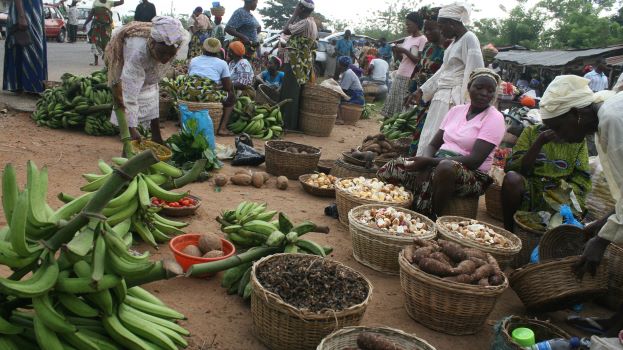Citing the prevailing economic conditions and unfavourable regulatory frameworks, economic analysts at the financial, business and economic information hub - Proshareng, have warned the nation of an impending food crisis.
According to a recently published review of the wheat value chain, the analysts explained that due to the disruption to vital supply chains, globally and locally, as a result of several COVID-19 curtailment policies, and unfavourable FX regimes, and insecurity issues in the wheat-planting belt of Nigeria, securing food for the average Nigerian is becoming tougher to sustain.
The report highlighted the profit eroding effects of the shrinking global wheat production levels, increasing cost and skyrocketing freight/ free on board (FOB) rates placed on Nigeria-bound goods on the revenue of flour millers and bakers.
It submitted that the current price hike in the global wheat market, which the local millers rely upon to bridge the expansive supply short-fall occasioned by the low level of domestic wheat production, constitute an operational strain that is heavily impacting the cost of production of millers and have the potential to further elevate wheat-based staples prices.
Highlighting recent price volatility in the global wheat market, the analysts noted that from as early as the first quarter of 2021 the global price of wheat rose to US$642 per bushel in January 2021 and then US$650 per bushel by the end of the quarter.
Further market pressures saw price settle at US$726.75 per bushel in May. By the end of June 2021, price dropped to US$693.5 per bushel, while yet another spike pushed price to US$707 per bushel in July 2021.
The sector report revealed how the millers and bakers absorb the inflationary burden and the impact of rising global wheat cost on the cost of wheat-based products. Adding that wheat-based food products are fairly price elastic and therefore any rise in the price of these products in the local markets can potentially heighten pressure on the disposable income of Nigerians, many of whom fall within the C, D, & E socio-economic spectrum.
The experts at the well-respected economic inform
The flour milling industry plays a significant role in providing Nigeria’s ever-growing population access to relatively cheaper staples. Recent industry reports show that 45 per cent of the food variants served in Nigerian homes are wheat derivatives, and account for 75 million of the daily food portions in Nigerian households.
They urged the government to allow the millers to access FX at the I&E window, suspend the 15 per cent cassava levy, explore other measures to support the millers and bakers, as well as assist local wheat farmers to acquire improved wheat seed varieties. They pointed to strategic tax concessions in areas that align with the backward integration target of the CBN amongst others as further measures that would forestall a cave-in of the flour milling industry.








